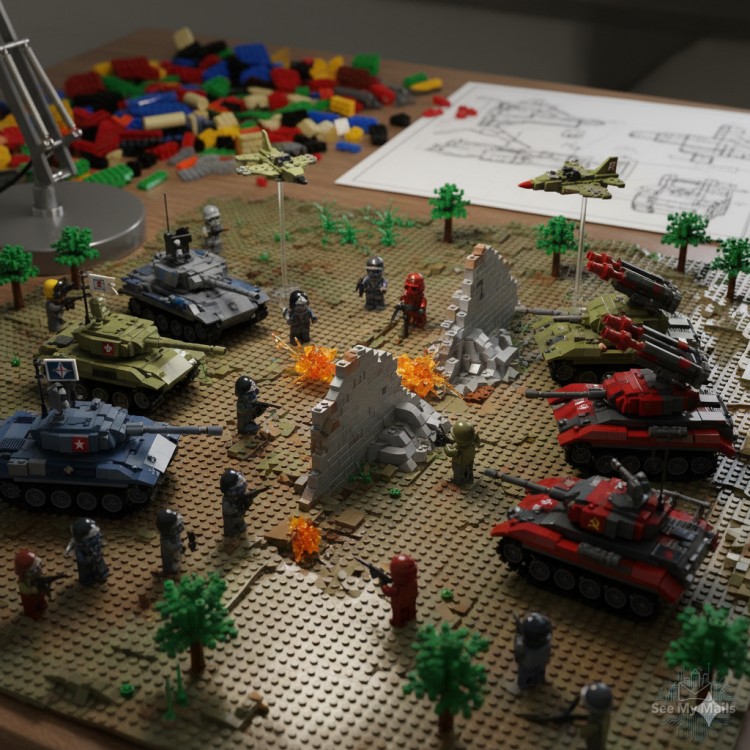
Query successful
The dynamic between the BRICS (Brazil, Russia, India, China, South Africa, plus new members) and NATO (North Atlantic Treaty Organization) concerning the war in Ukraine is a central feature of the current global geopolitical landscape, often described as a growing divide between a "Western" bloc and a "Global South" perspective.
Here is a breakdown of the key positions and implications:
NATO's Position and Role
NATO, led by the United States and including most European countries, has a clear and unified position:
Strong Condemnation of Russia: NATO explicitly and consistently condemns Russia's invasion of Ukraine as a brutal war of aggression and a blatant violation of international law and the sovereignty of an independent state.
Unprecedented Support for Ukraine: While NATO itself is not militarily engaged in combat within Ukraine (to avoid a direct conflict with Russia), its member states provide massive and sustained political, economic, humanitarian, and military support to Ukraine. This includes:
Military Aid: Coordination of military equipment, weapons, and training for Ukrainian forces.
Financial Assistance: Significant financial packages to support Ukraine's economy and defense sector.
Sanctions: Imposition of comprehensive sanctions on Russia.
Eastern Flank Reinforcement: NATO has dramatically increased its deterrent and defensive posture on its eastern flank, deploying additional troops and military assets in member countries bordering Russia (like Poland, Romania, and the Baltic states).
Open-Door Policy: NATO has reaffirmed that Ukraine's path to eventual membership is "irreversible," although full membership is unlikely while the war is ongoing.
The BRICS Bloc's Position
The BRICS countries, which see themselves as advocates for a multipolar world order less dominated by the West, have adopted a complex and largely non-aligned stance, often described as "pro-Russian neutrality":
Non-Condemnation of Russia: With the exception of early UN votes where Brazil sometimes voted against Russia, the core BRICS members (China, India, South Africa) have generally refused to condemn Russia for the invasion in international forums, often abstaining from UN resolutions.
Call for Diplomacy: The bloc's common statements typically call for an immediate ceasefire, a peaceful resolution through dialogue, and respect for the UN Charter principles. This is seen by the West as an equivocation that implicitly favours Russia.
Economic Continuity: BRICS members, particularly China and India, have maintained and often increased their economic ties with Russia, notably through increased trade in energy (oil and gas) at discounted prices, which helps mitigate the impact of Western sanctions on the Russian economy.
Challenge to Western Hegemony: Many BRICS members view the conflict through the lens of opposing the "unilateralism" and perceived "hypocrisy" of the West. They criticize NATO's expansion as a factor contributing to the conflict and advocate for reforming global governance structures (like the UN, IMF, and World Bank) which they see as Western-centric.
Individual Member Nuances:
Russia is a direct combatant and uses its BRICS membership to demonstrate it is not isolated internationally.
China maintains a strategic "no limits" partnership with Russia but is cautious about violating secondary Western sanctions.
India balances its long-standing strategic defense and energy relationship with Russia with its ties to the West.
Brazil and South Africa emphasize their non-alignment and the principle of sovereignty while criticizing the dominance of Western institutions.
The BRICS/NATO Divide: A Global Standoff
The war in Ukraine has hardened the perceived lines between these two major geopolitical groupings, leading to several consequences:
Economic Realignment: The BRICS response has accelerated efforts by Russia and other members to de-dollarize trade, promote local currencies, and establish alternative financial systems to bypass Western sanctions and influence.
Multipolarity vs. Bloc Politics: The BRICS bloc seeks a genuinely multipolar world where power is distributed more equally. NATO, meanwhile, has experienced a revitalisation and renewed purpose, solidifying the Western bloc in response to a perceived Russian threat.
The "Global South" Factor: The non-aligned stance of the BRICS resonates with many countries in the Global South, who feel that Western focus on Ukraine overshadows their own regional conflicts, development needs, and historical grievances.
In essence, the war in Ukraine is not a direct BRICS vs. NATO conflict, but it serves as the primary catalyst for a major geopolitical and economic reordering, where NATO is the central actor supporting Ukraine, and BRICS is the most prominent platform for states challenging the Western-led response.
DuKesh: Query successfulThe primary comment regarding a "NATO war with Russia" on September 25th came from Russian Foreign Minister Sergey Lavrov.Speaking at a G20 foreign ministers' meeting at the UN, Lavrov claimed that:
NATO and the European Union have "declared a real war" on Russia through their involvement in Ukraine.He asserted that the alliances are "directly involved" in the conflict, going beyond indirect support.NATO/Western reaction to these claims included:Rejection of the claims: The UK, for example, dismissed Lavrov's remarks as "false fantasy world distortions."Focus on airspace incursions:
The comments came amid rising tensions following multiple incidents of Russian drones and fighter jets violating the airspace of NATO member states (like Poland and Estonia).Willingness to shoot down aircraft:
Following US President Donald Trump's suggestion, NATO Secretary-General Mark Rutte and other European officials expressed a readiness to shoot down Russian aircraft violating their airspace "if so necessary," a move that the Russian Ambassador to France warned would amount to "war" against Russia.
In summary, the day was dominated by Russia doubling down on its rhetoric that the West is already a direct party to the war, which was rejected by Western nations while simultaneously they confirmed a hardening stance on defending their airspace against Russian incursions.
26.09.2025 0 points


